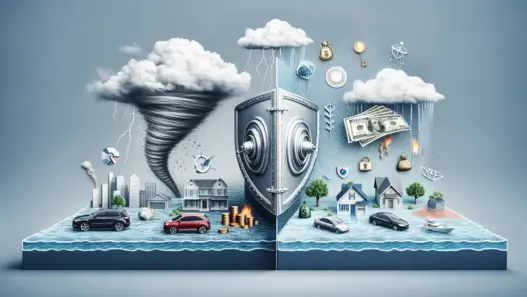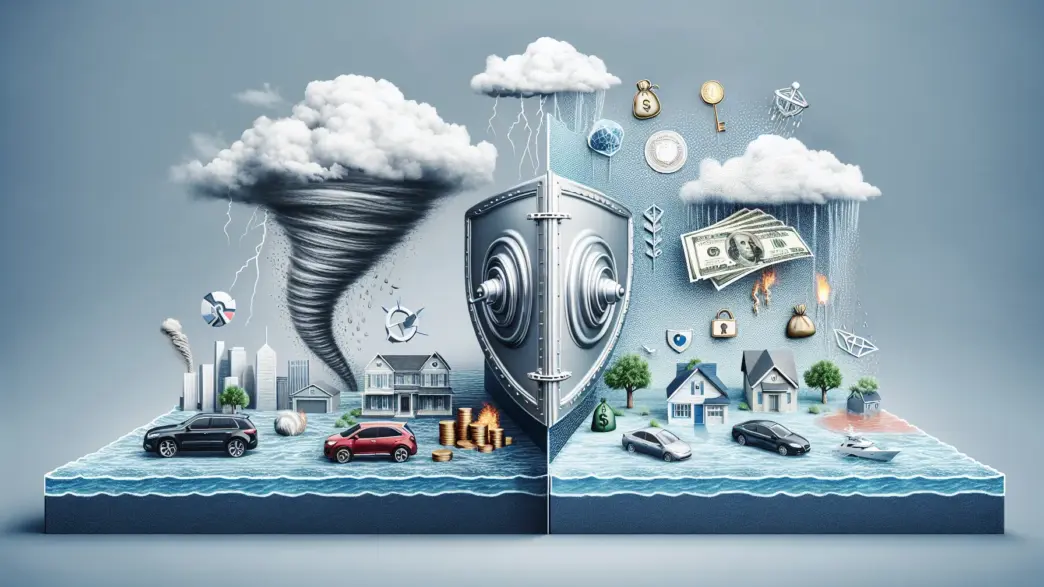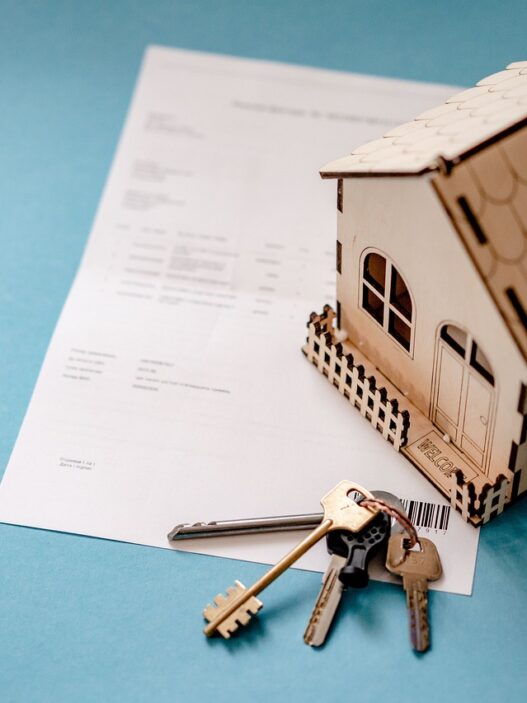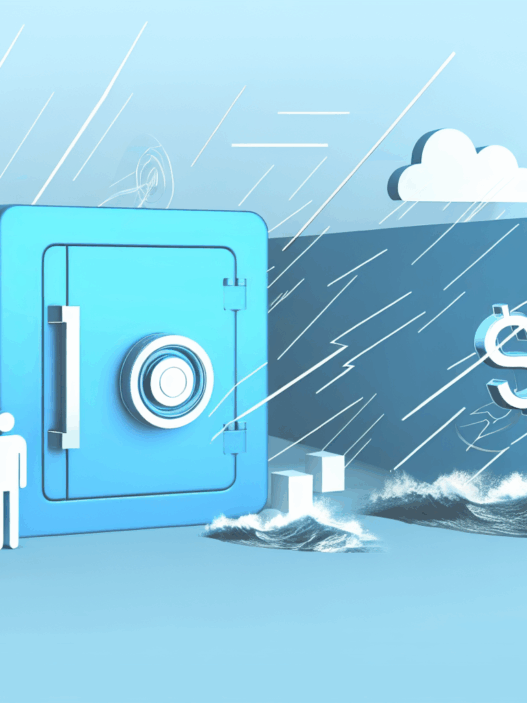Natural disasters can strike at any time, leaving devastation in their wake. While we can’t control when or where these events occur, we can take steps to protect our finances. Being financially prepared for natural disasters is crucial for safeguarding your assets and ensuring a quicker recovery. Let’s explore some key strategies to help you weather the storm financially.
Create an Emergency Fund
One of the most important steps in financial disaster preparedness is establishing a robust emergency fund. This fund should cover at least three to six months of living expenses. Having this cushion can help you manage unexpected costs that arise during and after a natural disaster.
To build your emergency fund:
- Set a savings goal based on your monthly expenses
- Automate your savings by setting up regular transfers to a dedicated account
- Cut unnecessary expenses and redirect that money to your emergency fund
- Consider placing your emergency fund in a high-yield savings account for better interest rates
Remember, the goal is to have quick access to cash when you need it most. Learn more about the importance of an emergency fund and how to build one.
Review and Update Your Insurance Coverage
Adequate insurance coverage is vital for protecting your assets in the event of a natural disaster. Take time to review your policies and ensure they provide sufficient protection.
Key insurance considerations include:
- Homeowners or renters insurance
- Flood insurance (often not included in standard homeowners policies)
- Auto insurance with comprehensive coverage
- Personal property insurance
Understand the most common types of insurance and how they can protect you during a disaster. Don’t hesitate to speak with your insurance agent to clarify any questions about your coverage.
Secure Important Documents
In the chaos of a natural disaster, important documents can be lost or destroyed. Take steps to secure these documents:
- Create digital copies of important papers (IDs, insurance policies, financial statements)
- Store original documents in a waterproof and fireproof safe
- Keep a set of copies with a trusted friend or family member who lives in a different area
- Consider using a secure cloud storage service for digital backups
Having easy access to these documents can speed up the recovery process and help you quickly file insurance claims or apply for disaster assistance.
Develop a Financial Disaster Plan
A comprehensive financial disaster plan can help you respond quickly and effectively when disaster strikes. Your plan should include:
- A list of all your financial accounts and contact information for your financial institutions
- Information on how to access emergency cash
- A strategy for paying bills and managing debt during a crisis
- Contact information for important services (insurance agents, financial advisors, etc.)
Follow these steps to create a personal budget that includes allocations for disaster preparedness.
Diversify Your Assets
Diversification is a key principle in financial planning, and it’s especially important when preparing for natural disasters. By spreading your assets across different types of investments and locations, you can reduce the risk of losing everything in a single event.
Consider:
- Maintaining accounts at different banks
- Investing in a mix of stocks, bonds, and other securities
- Keeping some assets in physical form (like cash or precious metals) in a secure location
Learn about different investment strategies to help diversify your portfolio effectively.
Plan for Business Continuity
If you own a business, it’s crucial to have a continuity plan in place. This plan should outline how your business will continue operating during and after a disaster. Key elements include:
- Backup systems for important data and records
- Alternative work locations or remote work options
- Emergency communication plans for employees and customers
- Strategies for managing cash flow during business interruptions
A well-prepared business is more likely to survive and recover quickly from a natural disaster.
Stay Informed and Be Prepared to Act
Staying informed about potential natural disasters in your area can help you take timely action to protect your assets. Follow local news and weather reports, and sign up for emergency alerts from your local government.
When a disaster is imminent:
- Gather important documents and valuables
- Secure your property as much as possible
- Follow evacuation orders promptly
- Keep some cash on hand in case ATMs or electronic payment systems are down
Conclusion
Financial preparation for natural disasters is an essential part of overall financial planning. By taking these steps, you can protect your assets and minimize the financial impact of a disaster on your life. Remember, the key is to start preparing now, before a disaster strikes. With careful planning and the right strategies in place, you can face natural disasters with greater financial security and peace of mind.
Frequently Asked Questions
How much should I save in my emergency fund for natural disasters?
Aim to save at least three to six months of living expenses in your emergency fund. This amount can help cover unexpected costs during and after a natural disaster, providing a financial cushion when you need it most.
What types of insurance are essential for natural disaster protection?
Essential insurance types include homeowners or renters insurance, flood insurance (often separate from standard policies), auto insurance with comprehensive coverage, and personal property insurance. Review your policies to ensure adequate protection for natural disasters.
How can I secure important documents in case of a natural disaster?
Secure important documents by creating digital copies, storing originals in a waterproof and fireproof safe, keeping copies with a trusted person in a different area, and using secure cloud storage for digital backups. This ensures easy access to crucial information during recovery.
What should a financial disaster plan include?
A comprehensive financial disaster plan should include a list of financial accounts and contacts, information on accessing emergency cash, a strategy for managing bills and debt during crises, and contact information for important services like insurance agents and financial advisors.
How can business owners prepare their companies for natural disasters?
Business owners should develop a continuity plan that includes backup systems for important data, alternative work locations, emergency communication plans for employees and customers, and strategies for managing cash flow during business interruptions to ensure quick recovery after a disaster.




















